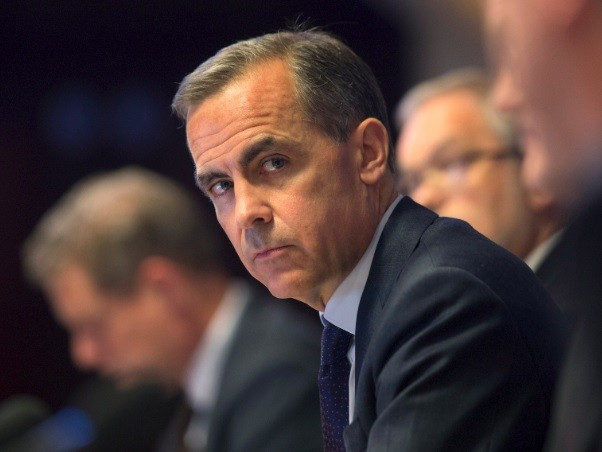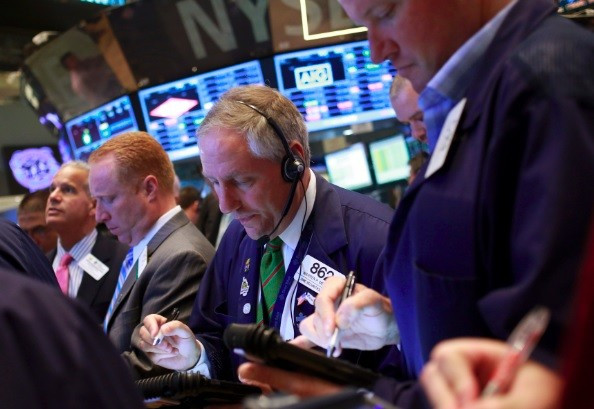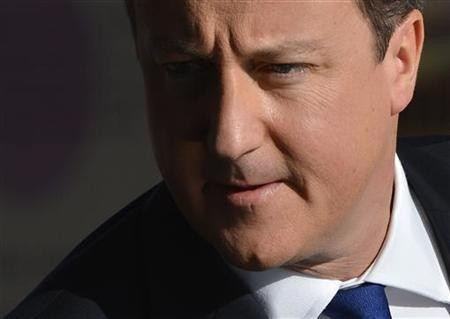Chilly con Carney: US Markets Give BoE Governor the Cold Shoulder

We have been here before with the tapering saga in the US. Once again, I am reminded of the words of the great Welsh hymn 'Cwm Rhondda': 'Bread of Heaven, Feed me 'till I want no more'.
Equity investors clearly want yet more stimuli: keeping it steady for three years is just not good enough.
This week it was Bank of England (BoE) Governor Mark Carney's turn to be given the cold shoulder.
In setting out forward guidance, the new governor wanted to reassure businesses and consumers that official rates were set to stay low for at least the next 3 years, especially as some bright sparks had recently started pushing up longer-term rates and buying sterling on the back of it.
The Monetary Policy Committee's (MPC's) mandate does not include promoting GDP growth and adopting unemployment as a target is, therefore, a very direct (and surely popular) signal of monetary policy intent.
At the same time, inflation must not be allowed to get out of control nor a new credit bubble formed.
This is not just reasonable but very positive for the UK economy.
US Market Reaction

Nevertheless, as in the US, the equity market's initial reaction has varied from mixed to unfavourable.
Rather than positive economic news, it seems more 'Bread of Heaven' is preferred even though the Bank's purchase and replenishment of its £375bn stockpile was yielding diminishing economic benefits and was in danger of squeezing out pension funds (which need to buy gilts; there is a direct parallel in the US where the Fed seems to have cornered the Mortgage-Backed Securities market).
There is, however, logic to this reaction, provided one does not intend still to be invested when the music finally stops.
Then there is the 'good news is bad news' attitude, which seems to have spread from the US.
Back in the UK
This is not just as simple as a difference of opinion over forecasts of unemployment and inflation. It requires disbelieving Carney when he says that 7% unemployment is a threshold and not a trigger for raising rates and that he will consider other factors.
Also, it implies that he should abandon all caution on inflation.
A further thought is that a divided MPC will bungle the new forward guidance or be taken over by a majority of hawks coming out of the closet. At best, this seems churlish and more like plain daft.
Markets
Fortunately, the mood perked up by the end of the week and the FTSE 250, which better represents the UK economy than the 100 Index, closed down a mere seven points (0.05%). It has had such a good run in recent weeks that some profit-taking may well have been a factor.
Gilt yields edged higher amid talk that the reduced prospect of new purchases by the Bank would depress prices but this could just be part of the correction for most government bonds that began in May.
Sterling swung, mainly higher, allegedly because of the likelihood of rates being raised sooner than Mr Carney proposed, but any old excuse is good enough for a 3% move in the FX market, especially if it was the opposite of what was expected.
It seems likely that equity investors will warm to Carney and increasingly believe in his commitment to growth, albeit with pangs of regret that he is not rushing to raise the 'bread' rations and with occasional jittery attacks if the economic news gets too 'good'.
Meanwhile, businesses and consumers will be tempted by the prospect of at least three more years of very low interest rates, which would surely be the real good news.
Bad News for Britain?

It has been hard to find bad UK news recently but this weekend has seen headlines about a 5.5% fall in real wages over the last three years, which is almost the 'worst' in Europe .
As it happens, that figure could be enlarged on Wednesday when another very small increase in average earnings will be announced.
Other figures are directly relevant to the MPC's new 'knock-outs' (i.e. factors that could bring forward interest rate rises).
Unemployment could actually increase very slightly, causing red faces for Carney's critics and, less likely, so too could inflation (but without obliging a letter to the Chancellor). Those same critics will almost certainly be disappointed if they are looking for signs of dissent in the August MPC minutes to be published on Wednesday.
As the sun keeps shining in Dear Old Blighty, there has even been evidence of the 'right' sort of growth in the shape of a jump in Manufacturing Output, including Exports. I am up for good news from any source and can, therefore, also welcome the latest PMI surveys and ONS reports on Services and Construction.
GDP growth of up to 1.5% is now looking very possible and share prices should hold up as a result. The pound may hang on to its recent gains vs. the dollar for a few more weeks but it must weaken once tapering gets underway in the US and Mr Carney's plans to 'hang loose' are better understood.
Alastair Winter is the Chief Economist at Daniel Stewart & Co
© Copyright IBTimes 2025. All rights reserved.





















